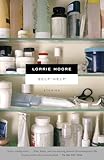I parked my car in front of the house of a modern-day witch called The Oracle of Los Angeles. I climbed the stairs of the giant, rambling, craftsman-style house to knock on her door. Through the glass I could see a bookshelf loaded with tomes by Salman Rushdie and Joy Williams. This, I thought to myself, was one very well-read witch.
I had arrived at the witch’s house because envy—that most unflattering of emotions—had long been gnawing at my innards. Often it made me feel lightheaded, almost dizzy. I wanted what other people had. In particular, I wanted what many of my friends had, friends whose career success came to them with what looked to me like little effort and mountains of luck while I toiled for years on projects that always seemed to bounce off the rim.
The Oracle (whose real name is Amanda Yates Garcia) opened the door, welcoming me by smudging me from head to toe with burning sage and sweetgrass, ringing a bell up and down the length of my body. She ushered me into the dining room, an open space with a long, low altar covered in tarot cards, candles, a set of animal horns coated in silver glitter, crystals, feathers and other objects.
I gave her cash—the spell would cost the equivalent of 50 minutes at a therapist’s office—and offerings for the goddess: chocolate and a small bottle of whiskey, as well as items I would need for our spell. The witch gave me a delicious cup of tea made from rose petals, and then she asked me why I had come. For an hour we talked. I told her the long history of pain that had brought me there, about the envy I had tried to assuage through various healing modalities. I cried. The Oracle seemed unfazed; she told me that everyone who came to her cried.
The Oracle told me we would no longer use the words “envy” or “jealousy” to describe this emotion that had ahold of me. Envy was a demon that inhabited me and so we would call it a demon, and in the course of the spell we would drive the demon out.
 Before we began I went to the bathroom. The witch’s toilet reading included a tattered paperback of mythology, Lorrie Moore’s Self Help and a booklet entitled, “Witch-Hunting, Past and Present, and the Fear of the Power of Women.” I was somehow pleased to see that like my bathroom, the witch’s could use a scrub.
Before we began I went to the bathroom. The witch’s toilet reading included a tattered paperback of mythology, Lorrie Moore’s Self Help and a booklet entitled, “Witch-Hunting, Past and Present, and the Fear of the Power of Women.” I was somehow pleased to see that like my bathroom, the witch’s could use a scrub.
When I returned it was time for the spell to begin. The witch stood up and let out a piercing whistle while fervently shaking a gourd rattle, which I first mistook for a maraca. As she spoke, her voice changed, become low and growling and beautifully theatrical: “Hail Guardians, spirits of the East, watchtowers of the mind, Guardians of intelligence, mighty Guardians of the air. We call you now. Witness our rites. Charge our spell. Be here with us.”
While I felt I should probably close my eyes, I kept them open as she called spirits from all four directions. This performance, done so earnestly, was fun, dramatic, almost campy in its showy playfulness. But it was also poignant and powerful. It alone, I thought, was well worth the price of admission.
These spirits of water, wind, air, and fire called from the north, south, east, and west would join us and help create a sacred, protected space where our spellwork could occur. Did I believe this? I felt it didn’t entirely matter—nothing spiritual I’d done before had ever been so delightful. And while I was watching a witch shake a maraca, was the demon twisting my innards, was I wanting what other people had? No way. I was too busy being entranced, enjoying the strange beauty of the experience.
After the spell, we went to a fire pit in the backyard to burn an image of a demon that I had brought with me. There was something tactile and satisfying about seeing the demon go up in flames, then turn to ash that the witch carefully folded up in a tinfoil packet. When I asked if I should leave the ash with her, the witch shuddered. “I don’t want that bad juju around here,” she said. And then she gave me instructions on how to dispose of it far from her home.
When I arrived at my house late that night, my scientist husband emerged from our bedroom to hear how things had gone.
“What’s that on your face?” he asked, worried.
But even as my hand rose to touch my cheek, I knew. “That’s ash from the demon I burned and then dumped at a crossroads where I will never go again,” I said.
“Ah,” he said, nodding. I think part of the reason he loves me is I don’t bore him.
I went into the bathroom and scrubbed the ash away with a wet washcloth.
Was the demon gone forever after that night? At first I was as envious as before, but when I felt the old twinge I had a new tool. “Go with honor, go with love. Be gone, be gone, be gone, I banish you!” I would say to the demon, just as the witch had taught me to do. (This is a technique remarkably similar to cognitive behavioral tools focused on stopping negative rumination.)
But a few months later, when I saw a kind friend’s project featured in a popular magazine, I texted her with genuine enthusiasm and ran out and bought a hard copy for her. The act of kindness and support felt light, good. Soon after that same friend told me she was suffering from depression. Raising small kids and trying to write was weighing on her; it was hard to find time to even shower, much less exercise. And she was envious of another author whose book was published on the same day as her own and was receiving more attention.
It was after my visit to the Oracle that I realized it: there are stories we tell ourselves about success. That it will heal us. That it will make us happy and whole and self-confident and well. That it will protect us from every disaster and heartbreak and illness and tragedy. And we know none of this is true. Logically, making a list of famous authors who have suffered terribly would disavow these lies. Virginia Woolf. Ernest Hemingway. Anne Sexton. Hunter S. Thompson. David Foster Wallace. Success does not heal.
But certainly for a very few of us, it does grant some sort of immortality. It guarantees we will be remembered. There are writers whose work we recognize in a line or two, and our hearts sing with recognition, even joy. And so they live on in us.
Someone told me once that Jay Leno stopped worrying about his legacy after he mentioned Dick Van Dyke to an intern, who thought he was making a gay joke. Going to see the witch has helped me to accept that no matter what I achieve in this lifetime, in many ways I will forever be like the demon whose likeness I printed on paper and burned. As will the people who materialize before me during my bouts of envy. We will die. We will be turned to ash, chips of bone. Someone who loved us will scatter us, maybe not at a crossroads, but certainly in the wind. And like the demon, we will be gone. Nothing left but a smudge of ash on a forehead. Nothing remaining that a washcloth cannot scrub away.
Image Credit: Pexels/Mac Mullins.










